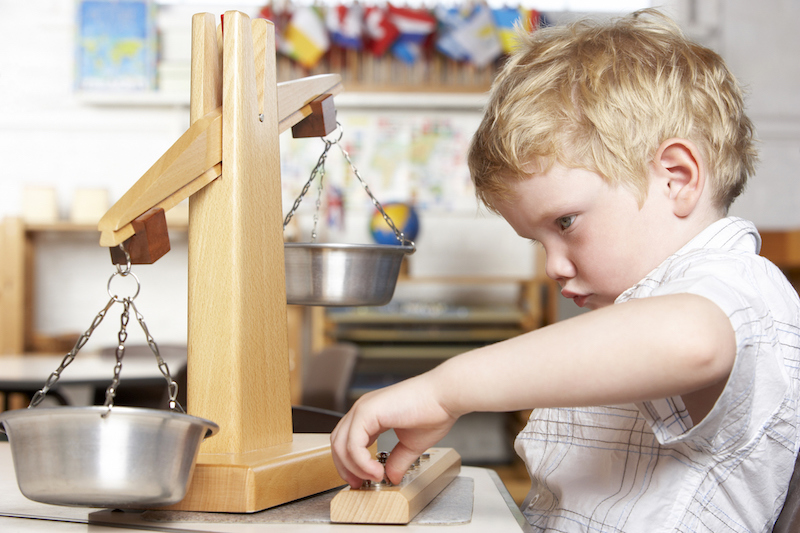“Success in school is directly tied to the degree to which children believe that they are capable and independent human beings. If they knew the words, even very young children would ask: ‘help me learn to do it for myself’.”
~ Dr. Maria Montessori
Maria Montessori believed the years between three and six are the most critical period to nurture a child’s natural curiosity and to begin building a foundation for future development.
Our mixed-age Casa program embodies a collaborative environment that builds community and offers unique learning opportunities. Children develop independently at their own pace while gaining essential social, physical, intellectual and emotional skills. The children in the Casa program receive both individual and group lessons that nourish and guide spontaneous independent discovery.
The Montessori Casa classroom is organized into five main curriculum areas:
- Practical Life
- Sensorial
- Language
- Math
- Culture
Each of these areas offers a wide variety of activities for children to explore, practice and perfect. The teachers ensure that the children are working at their appropriate level and introduce new learning as the children master skills. Children’s exposure to language and math happen daily and cross over several areas of our program.
The Montessori materials are real and size-appropriate and offer hands-on learning experiences. The materials are designed to spark a child’s natural curiosity, help develop independent learning and give the children concrete learning experiences.
Children participate in daily outdoor education and weekly music, art and French classes. Creativity, imagination and laughter are at the heart of our Casa classroom.
The goals of our Casa program are to:
- Instill an intrinsic love of lifelong learning.
- Nurture a positive attitude towards self and learning.
- Increase independence using new skills and competencies learned.
- Broaden the base of knowledge and vocabulary.
- Encourage curiosity, initiative and persistence.
- Help children internalize the symbol systems: language and math.
- Build patience, learn to take turns and develop social skills.
- Develop self-discipline.
- Establish good work habits.
- Encourage free choice and the ability to choose.
- Create an environment of respect and care for classmates and the classroom.
JOIN THE WAITLIST

